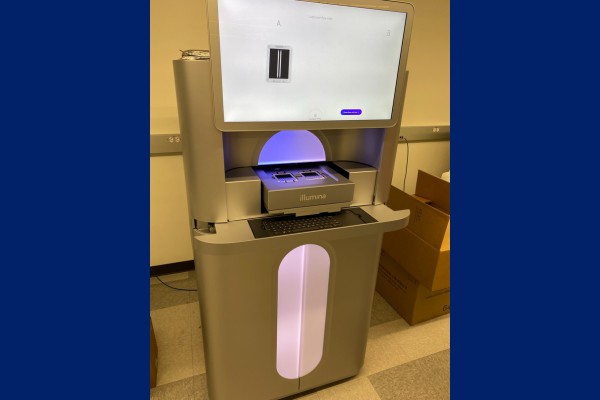Unlocking Genomic Potential: Highlights from Genomics Scientific Retreat
The Duke School of Medicine Precision Genomics Collaboratory (PGC) held the third annual Genomics Scientific Retreat on December 8 in the Trent Semans Center Great Hall. The event showcased two keynote speakers; 13 short talks and over 20 posters from trainees, research staff, and junior faculty; talks from previous PGC pilot grant winners, and chances to network with others interested in genomic research.
Majoros earns prestigious Maximizing Investigators' Research (MIRA) Award for Career in Genomics Research
Bill Majoros, has been awarded a $1.9 million research grant to be used over five years to develop methods for identifying aberrations in gene expression to improve disease diagnosis.
In Search of a Few Good Mentors
Mentors make a difference! The Summer Scholars Program is looking for more mentors to help provide first- and second-year students from across the country opportunities to gain valuable experience in the lab.
PGC Announces Student Pilot Grant Awardees
The Duke University School of Medicine Office of Biomedical and Graduate Education (OBGE) and Precision Genomics Collaboratory awarded 7 pilot grants of $2,000 each to SOM Biomedical PhD students. The goal of these grants is to support our students in scientific and educational efforts to bolster their graduate training experiences. These awards will help further research in a broad array of topics including cancer, gut microbes, RNA and DNA sequencing, neurons and astrocytes, developing new methods.
PGC Faculty Among Most Highly Cited Scientists for 2023
The official list of Clarivate’s Most Highly Cited Scientists came out on November 15. Among the 30 Duke faculty to make this list, five are also faculty in the Precision Genomics Collaboratory.
Congratulations to our highly cited researchers!
Master Regulator of the Dark Genome Greatly Improves Cancer T-Cell Therapy
A CRISPR-based platform identified many genes that could potentially improve T-cell therapies for cancer treatment
Record Attendance at North Carolina American Society for Microbiology Annual Meeting
The North Carolina American Society for Microbiology (NC-ASM) had record attendance at its annual meeting Saturday, hosted by the Duke Microbiome Center, attracting more than 300 researchers from across the Southeast.
Two School of Medicine Faculty receive Award from Doris Duke Foundation
Two Duke School of Medicine faculty are among the 25 physician scientists who have received the Paragon Award for Research Excellence from the Doris Duke Foundation.
Sequencing Core launches Illumina X Plus sequencer
The Sequencing and Genomics Technologies Core Facility is running orders for the Illumina NovaSeq X Plus.
The X Plus provides high quality short read sequences for a fraction of the cost of the Illumina NovaSeq 6000. Additionally custom read-length projects can now purchase lanes instead of full flow cells (e.g. 75 SR for miRNA-seq, single cell protocols).
The available products are listed below, with more read options available towards the end of the year.
Product
Internship at Duke Medical to benefit NCCU undergraduates
A new internship program aims to alleviate a shortage of African American physicians. North Carolina Central University and Duke University jointly developed the Mentored Internship Program, which allows an undergraduate from NCCU to work as an intern in the division of nephrology at Duke University School of Medicine for one year.








